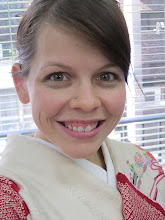Instead, after 3 months of doing stuff everyday (except Sundays), the staff who works amazing hard is joyful and can definitely multitask. The meeting room has signs everywhere, and sheets of things so that they can simply understand what's going on. The schedule for the day is written on the white board (ha, but only in Japanese-- there's an English version on the board on a piece of paper). The first thing I did when I got there was sign in, was asked about insurance, and quickly found a room among a few... At night, the house becomes a maze of places where people are sleeping. Tim said there are usually 25-60 people there at a time.
At the meeting in the morning, what things are going on that day are discussed and leaders let the volunteers know about how many they will need. Volunteers decide where they want to participate that day.
Here are some of the opportunities to serve:
-"Gareki" (rubble- new Japanese word for the week)-- there are different projects going on that day. Each day that I went, there were 2 or 3 opportunities. Sometimes only carpenters are needed. Sometimes they say that at a particular place there will be hard labor. But basically, you go and do whatever is needed there. While I was there, one team was putting up temporary walls at a house/rice factory. Another was washing dishes and supplies at a traditional Japanese Inn. The water brought in sand and mixed oil with it. In order to reopen, all the supplies had to be cleaned-- which was pretty hard work. And then there are teams that clean out houses and divide the trash into burnable, glass, wood, etc. and throw it all away.
-Cafe-- Downstairs at the church, there is a center where those in need can get supplies-- anything from clothes, shoes, diapers, milk, blankets, etc. But they have to let the people know what they need. So, while the workers arrange stuff so that the people can come get what they need, there are other workers in the cafe. Those waiting for supplies for their families sit there and can have some free coffee/tea/cake. The workers sit down and have conversation with those waiting and listen to them. This is a great opportunity to share the Gospel and to minister to them. This is also an important part of disaster relief. I think another girl who is a hair stylist came in, and gave free hair cuts to people, which is another opportunity to talk.
- Kitchen/Clean Up-- There are also those who stay at the church to make breakfast, lunch and dinner for staff and volunteers. They also help clean up the bathrooms, living room, and other things. This is a very daily job!!
-Foot washing-- A couple of times a week (?), people go up in the afternoon to the refugee centers and wash feet, give foot massages to those living there. This is another opportunity to listen and minister.
-Takidashi-- ...which means giving out food. So teams will go to some shelter at dinner time, give out food, clean up and sit down to converse with people. Yup, more opportunities.
-There is more, I think but I can't seem to remember...
So, in case you're wondering-- here's what the day looks like
6am- Devotional (not required, but it's good!)
8am- Breakfast
9am- Morning Meeting (a bit of music, day's events and short prayer time)
10am- Teams head out
4:30pm- ish-- If there's foot washing, you go there...
6pm- Dinner
8pm- Evening Meeting
More blogs to come...
Tsunami damage
Impressions and Stories from Iwaki


No comments:
Post a Comment